A Spectacle of Life – Affirming News on the Cusp of the U.N.’s 70th Birthday
The convergence of a papal tour, a Chinese president’s visit, an auto executive’s resignation and a House speaker singing “Zip-a-Dee-Do-Dah” has stirred the winds of civility.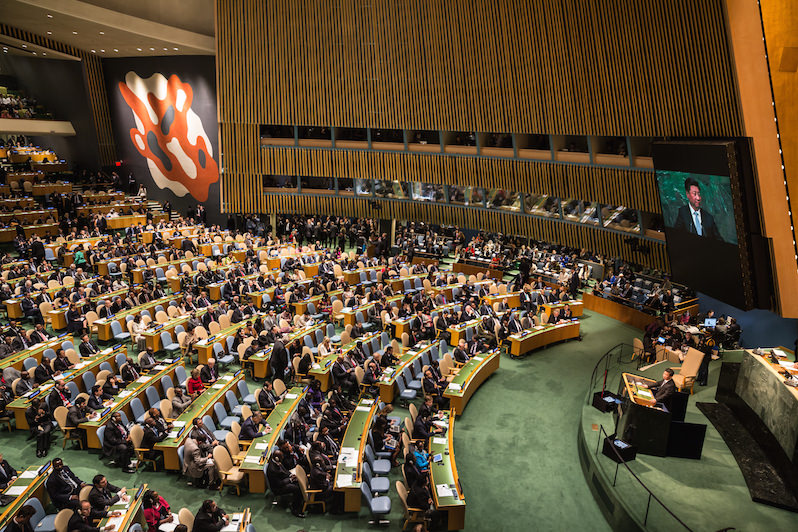 President of the People's Republic of China Xi Jinping speaks at the opening of the 70th session of the General Assembly of the United Nations in New York on Monday. (Drop of Light / Shutterstock)
President of the People's Republic of China Xi Jinping speaks at the opening of the 70th session of the General Assembly of the United Nations in New York on Monday. (Drop of Light / Shutterstock)
By G. Thomas Goodnight
In June 2014, United Nations Secretary-General Ban Ki-moon announced a yearlong global celebration of the United Nations as it approached its 70th birthday, Oct. 24, 2015. Such moments offer “a once-in-a-generation opportunity,” he said. “Our goal is to put people at the center and protect our one and only planet. Our duty is to end poverty, leave no one behind and build lives of dignity for all.”
Will Americans join the celebration? True, we are ordinarily more parochial than cosmopolitan: USA! USA! America first, and always. Isolating threats do cloud our horizons from time to time. But last week, the dark ambiance gracing our republic briefly lifted. Pope Francis, Chinese President Xi Jinping, Volkswagen Chief Executive Martin Winterkorn, former Secretary of State Hillary Clinton and soon-to-be-former House Speaker John Boehner’s paths crisscrossed and colored public screens. These figures made the moral dignity of all people and the gravity of planetary life suddenly popular topics. Their talks jumbled into a postmodern spectacle, a discourse of influence that did not so much strive to change hearts and minds as to punctuate the venal back-and-forth of ad hominem politics with a reminder that we can ask more, much more, of our government and ourselves. Change is in the air.
Partisan politics yield little profit and roil with ugly costs. Posturing in Washington mocks the state and those who serve, defend and govern. Revolutionary passion is claimed by insiders who feign to be outsiders. It’s as if Capitol Hill’s parties read Saul Alinsky’s “Rules for Radicals.” Politicians junk comity and offend generously. Rude gestures are brandished as leadership; compromise is bashed as complicity. Attack, suspicion and anger drive Washington’s post-9/11 fear of terror; in its post-recession radical extension of that anxiety, would-be populists spread fear of foreigners across the country.
Mothers and children crossing the Texas border are dubbed “terrorists,” while Gov. Greg Abbott calls out the National Guard to display his toughness. Dignity and gravity have not been watchwords for post-2008 American politics. Thankfully, fashions are fleeting. Last week the public heard voices that spoke to better versions of ourselves. The travels of a pope, a president, a chief executive, a secretary and the House speaker assembled into spectacle. Winds of civility stirred.
Spectacle has a long history. Displays of power began with jubilees for civic heroes in classical times. For millennia, games and gifts were placed on display to praise far-off satraps and emperors. In medieval times, color, pageantry and aristocrats were put in train to impress the locals. Mass media transformed spectacles into the industrial offerings of private advertising and state propaganda. At last century’s end, presidential speeches themselves appeared to concoct reality and opened the question whether “the tale had come to wag the dog.” Some attributed the crisis-making manipulations by Presidents Reagan and Clinton more to domestic theater than national security.
Spectacle has its catastrophic side, as well. The events of 9/11 were orchestrated by Osama bin Laden, an apocalyptic poet who turned the passenger plane into a weapon of mass destruction. In spite of President George W. Bush’s warning that America should not engage in religious persecution, anger and fear were mashed up with family values to falsely justify a war of choice. The Obama administration has wound down the wars, gradually, but it remains for an event comparable to 9/11 to change the discordant tone of suspicion, distrust and partisan posturing.
Last week, new horizons appeared. Dignity and gravity were reintroduced in a dramatic way. This time the spectacular came together in a mix of actions by speakers who took up common topics in an uncommon way: through lack of discord. The week’s events refreshed cosmopolitan horizons. Pope Francis’ visit to the U.S. in the wake of his trip to Cuba was the most colorful. The faithful assembled and invited all peoples to commitments for human dignity. Francis entered the halls of Congress as pastoral father and departed as ecumenical ambassador. He addressed the factious group by reminding it of the perdurable aspirations of legislators, the higher aims of concord, and the common duty of justice.
Media sources tossed off the speech. The pope’s politics were discounted as bipartisan—“throwing each side a bone.” It was nothing of the sort. The pastoral vision harked back to 19th century encyclicals, which brought poverty and family needs closer to the heart of Western politics. The Pope Francis spectacle was not aimed so much at changing minds through sleek persuasion; his was an effort to summon parties to a common cause. Jewish feminist Naomi Klein responded to the pope’s invitation to join forces with his summer Encyclical on Climate. She contributed her enthusiasm last week—as did a range of women working for change on adjacent sets of questions. The papal fusion of war, poverty and climate voiced an integrated ethic—a horizon that nurtures within it collaborative disagreements. Topical press coverage parses issues into a series of this-and-thats—all heard before. Such dismissals appeared overwhelmed by the conjunction of events.
On Sept. 22, the same day as the pope’s arrival, Chinese President Xi Jinping had a huge announcement of his own. China’s new commitment to cap and trade promised an agreement that could unseat the long reign of carbon culture. He trailed through Washington state, to a meeting with corporate heads, to a state dinner at the White House. These were the rituals of elite, economic diplomacy. The appearance together of Chinese and U.S. presidents announced a historic convergence of national views on the fate of the planet, while each expressed the need to continue to work on differences remaining. The ambit of discussion seems to be changing. Is there still time? Will things get in the way? Will other nations follow at the upcoming climate conference in Paris? Questions remained. Still, the gravity of an issue of global change turned attention away from the incessant quibbling of Congress, whose climate-change doubters recede into a well-financed, doggedly anti-scientific minority. The pope appearing as a spokesman for science? The president of China assuring American business of sound investment? The stars (re)aligned. But odd things do happen when postmodern spectacle travels the globe. Events network, awkwardly jostle, and link up. Coincidentally, Hillary Clinton chose the pope’s congressional touchdown as her moment to announce opposition to the Keystone XL pipeline. The chief executive of Volkswagen, Martin Winterkorn, admitted that the automotive giant had been cheating on pollution tests—one of many examples of moral hazard and fraud by major firms in the post-2008 era. Winterkorn took the blame and resigned.
Not coincidentally, John Boehner talked privately with the pope, went to sleep, and next day woke up and chose to resign from Congress. A life ambition fulfilled in seeing the pontiff visit the Capitol, the speaker managed to leave the House with its and his dignity still intact. Posturers gunning for a Planned Parenthood-fueled shutdown no longer bound him. When the speaker’s burden lifted, his friends and enemies switched.
Thus, the pope, the president, the former secretary of state, the soon-to-be-former speaker and the ousted head of VW last week played together a political harmony, turning from the fearful and insecure reverberations of global war. Each figure spoke colorfully and with passion, differently, stirring hopeful and morally charged sentiments. Most significant among the events was Francis’ visit on Friday to Manhattan’s ground zero, putting a period on the statement of terror by bin Laden. There the dignitaries of New York and speakers from religions around the globe remembered loss and celebrated renewal.
New York politicians, clergy and elites splashed onto the scene. Children, laity and workers swirled around to embrace or glimpse the white cassock. The nifty Fiat became a papal vessel, squeezed between muscled-up black SUVs. The lines of cellphone-equipped people appeared joyous and disturbing at the same time. The postmodern spectacle caught up ticketed and unticketed Americans in lines barred off by a massive national security presence.
Different and perhaps most notable was the pope’s visit Sunday with inmates at Philadelphia’s biggest prison, reminding Americans of the needs of 2.3 million fellow citizens locked away. The terms of peace, regard and rule of law were given new life. The 70th anniversary of the United Nations and its millennial goals, by coincidence and design, were put into the grandeur of global play.
Postmodern spectacle and its glittering acts call for changes in how nations and peoples act toward a common good. Nine-eleven set off fragmented spasms of tactical violence, zones and drones, and terror. Faux-state coalitions, Hollywood-style “shock and awe” and networks of violence and security assemblies left wounded narratives with only worries about more and greater violence to come.
Postmodern spectacles offer a new moral reach for care, peace and liberty, but do so with a wry humor that keeps sentiment in line with thinking. The week was a show. The pontiff shifted just a bit too easily into hip poses with the squeezes of New York selfie-snapping faithful. Hillary’s XL pipeline opposition appeared a little too convenient with its popish timing. Her zombie emails were the bigger story. President Jinping’s mix of promises was followed with a perfunctory gesture at the U.N. for women’s rights. Winterkorn’s disappearance raised suspicion that other tires in the car industry would drop. Boehner sang “Zip-a-Dee-Doo-Dah” on the speaker’s platform upon announcing his departure—an odd attempt at dignity recovery. National security visibly marred the marvelous ticker-tape-style papal welcome by New Yorkers. Predictably, Republican presidential candidate Ted Cruz beefed up his hate-campaigning, naming to his list of loathing Speaker Boehner, Iran’s Ayatollah Ali Khamenei and Sen. Mitch McConnell. Once more, the can got kicked down the road. The U.N. birthday celebration in October looms. Rootin’, tootin’, Vladimir Putin threatens to spoil the party, with warlike spectacles to divert attention from his over-a-barrel regime.
The jumble of public events of late summer/early fall 2015 did punctuate, if not cap entirely, a world at war. Shows of dignity and gravity graced American screens, while care and commitment circled broader planetary horizons. Justice-driven legislation, corporate leadership, ecumenical efforts, environmental care — all are necessary to work together in a world where we pray for peace and labor for the safety of others. Hallelujah. Happy birthday, United Nations.
G. Thomas Goodnight grew up in Texas and has taught at Northwestern University. He is currently a professor at the USC Annenberg School for Communication and Journalism and studies the history of American public address.
Your support matters…Independent journalism is under threat and overshadowed by heavily funded mainstream media.
You can help level the playing field. Become a member.
Your tax-deductible contribution keeps us digging beneath the headlines to give you thought-provoking, investigative reporting and analysis that unearths what's really happening- without compromise.
Give today to support our courageous, independent journalists.
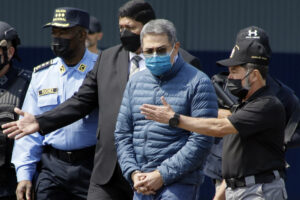
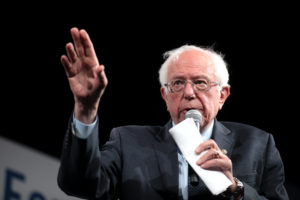

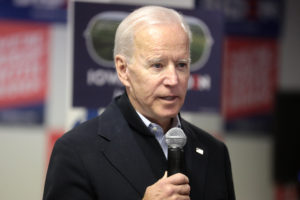

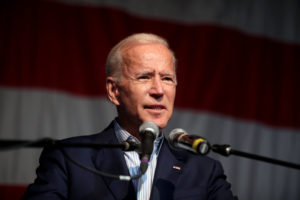
You need to be a supporter to comment.
There are currently no responses to this article.
Be the first to respond.